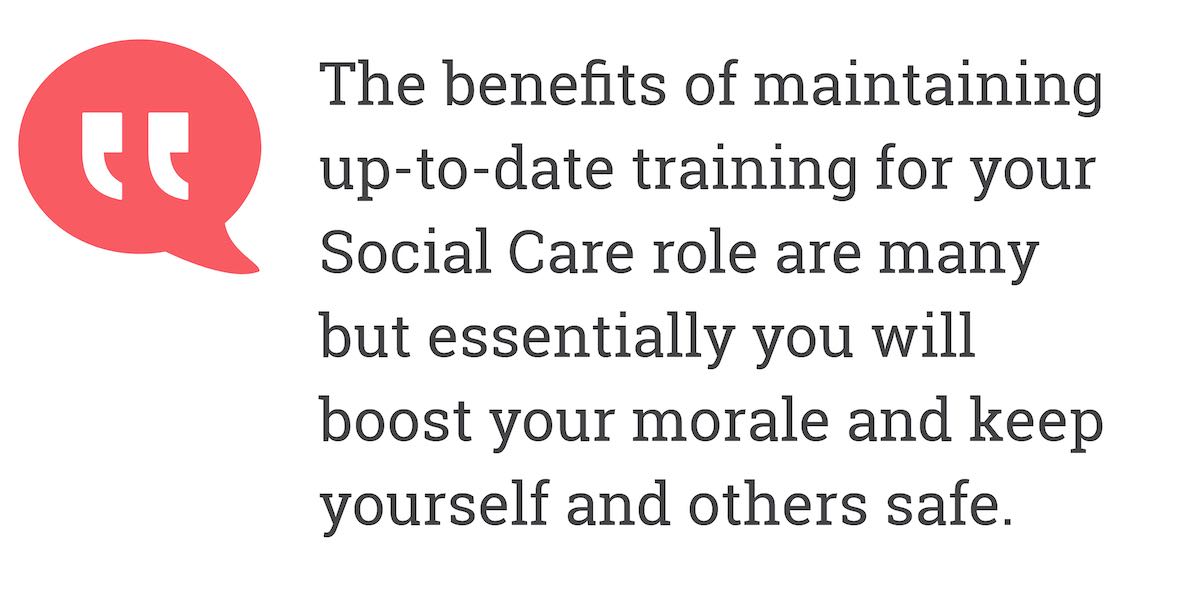- 16 June 2021
- 6 min read
Why It is Crucial To Keep Your Social Care Training Up To Date
SubscribeTo work in social care you are obligated to provide a duty of care. This article explains what that means, what your training should cover as well as how insurance and DBS will get you employed faster.
 "The benefits of maintaining up-to-date training for your Social Care role are many but essentially you will boost your morale and keep yourself and others safe." - Zuva Chinhori, Live-In Carer
"The benefits of maintaining up-to-date training for your Social Care role are many but essentially you will boost your morale and keep yourself and others safe." - Zuva Chinhori, Live-In CarerKnow Your Duty Of Care
As someone who works in a Social Care setting, you owe a duty of care to your patients / service users, your colleagues, your employer, yourself and public interest.
According to the Unison Duty of Care handbook, your duty of care means that “you must aim to provide high quality care to the best of your ability and say if there are any reasons why you may be unable to do so.”
As a result, one of the main expectations for anyone working in Social Care is to keep their knowledge and skills up to date.

This applies to staff of all occupations and levels and even students, volunteers and those who work part time or temporary roles.
For more information on Duty of Care, take a look at the Unison Duty of Care handbook.
Why Training Is Important In Social Care
In addition to this, here are some other important reasons why keeping your training up to date is crucial:
1. It may be illegal for you to carry out certain tasks in some roles if you are not adequately trained or your training is out of date.
2. Taking on certain responsibilities without appropriate training can mean that you are putting yourself, the individuals you support and others at risk of harm.
3. As a result, you could face legal consequences if something goes wrong. Consequences include losing your job, fines and / or imprisonment in serious cases.
4. When the Care Quality Commission (CQC) carries out an inspection of your employer, they could also get fined if found to have not adequately trained their staff.
However, it is still also your responsibility to make sure you maintain your training and skills. Your manager will appreciate you being proactive in this.







About this contributor
Self Employed Live In Carer
I believe the UK Social Care sector has the potential to thrive and to help make that happen I believe in empowering Carers. I write about health and wellness for live in carers at my blog Caring For The Carer. When I’m not writing, you can find me in my kitchen perfecting my sweet potato and chicken curry recipe.
More by this contributorWant to get involved in the discussion?
Log In Subscribe to comment